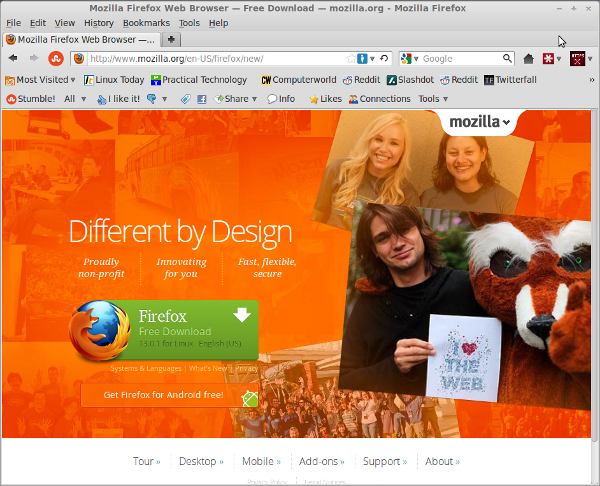Firefox: Can this Web browser be saved?


These are not good days for Firefox.
The real battle for the number one Web browser in the world these days is between Chrome and Internet Explorer. Firefox, by StatCounter's latest numbers, is a distant third. The latest release of Firefox, had to be patched to deal with a serious Adobe Flash crash and many users tell me they're not happy with it. Now, adding insult to injury, former Mozilla developer Jono DiCarlo claims Firefox's rapid release schedule has "ruined" Firefox and "killed [its] reputation.”
Firefox started its rapid-release schedule in an attempt to play catch-up with Google Chrome. But, as DiCarlo wrote, “Credit where it's due: the way Google handled Chrome updates was very, very smart. They recognized that updates are one of the hardest things to get right, so they solved that problem first, before releasing version 1. The first release of Chrome was little more than an empty box of a browser, but it was wrapped around an excellent updating system. This let them gradually transform that empty box into a full-featured browser, without the users ever realizing they were getting updates.”
That's true. While I am very aware of Chrome's update, it's my business to keep to track these things. Most users don't notice that Chrome is constantly and quietly updating itself. For example, did you know that Chrome is now up to version 20?
Firefox, on the other hand, wrote DiCarlo “Ironically, by doing rapid releases poorly, we just made Firefox look like an inferior version of Chrome. And by pushing a never-ending stream of updates on people who didn’t want them, we drove a lot of those people to Chrome; exactly what we were trying to prevent.”
The numbers back his claim up. Royal Pingdom, an online uptime monitoring company, reported in December 2011 that whereas each new version of Chrome quickly reaches 90% of its user base, each new release of Firefox left more and more users behind.
Why? Pingdom wrote that they had heard that many users “had disabled updates in Firefox to keep their browser plugins from breaking. This actually seems to be a pretty major thing to a lot of people. With the rapid release schedule, many extension and plugin creators simply can’t keep up.”
DiCarlo came to a different conclusion. “After years of aspiring to improve software usability, I’ve come to the extremely humbling realization that the single best thing most companies could do to improve usability is to <i>stop changing the UI so often! </i> Let it remain stable long enough for us to learn it and get good at it. There’s no UI better than one you already know, and no UI worse than one you thought you knew but now have to relearn.”
He'll get no argument from me. I believe GNOME's fall from grace as the Linux desktop's favorite interface and what I foresee as Windows's Waterloo—Windows 8's Metro— are both due to breaking users' interface expectations.
Firefox's interfaces changes haven't been that drastic, but whether it's browser plug-ins, too many changes too fast, or the interface itself, Firefox is losing market share. Mozilla, it's parent organization has also been switching priorities recently. After, at best, luke-warm support Mozilla will no longer be supporting its Thunderbird e-mail client and the group is now trying to push ahead with its own mobile operating system, Firefox OS.
Really Mozilla? Does the world really need another mobile operating system? I don't think so. I think Mozilla would be better served by focusing on slowly improving its flagship program, Firefox. While Firefox has been burning through its good will in recent years, I think a dedicated effort to stablize and improve it would regain at least some of its fan base. If they don't well, maybe Firefox can't be saved. And, that would be a pity.
Related Stories:
Firefox OS photo revealed by Mozilla evangelist
Firefox users still waiting for Flash crash fix
Mozilla scraps Thunderbird development - email client 'not a priority' anymore
Google reduces Chrome's reliance on Flash
Firefox 11 review: Firefox has jumped the shark